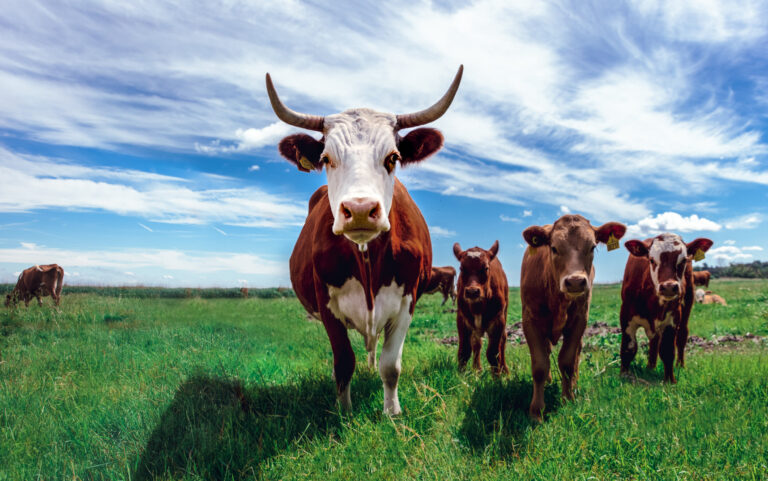The Oyo State Government has launched a free vaccination exercise targeting over 88,000 livestock animals across the state, in a proactive move to prevent the outbreak of anthrax and ensure food security.
The vaccination exercise aims to boost livestock productivity and protect animals from infection.
Anthrax outbreaks have been reported in parts of Nigeria, with confirmed cases in Niger State and Lagos Marina, as well as in other countries such as Ghana and Zambia.
At the opening campaign exercise held in Fasola Agribusiness Industrial Hub, the Chairman, Steering Committee of Oyo State Livestock Productivity and Resilience Support Project (L-PRES), Debo Akande urged farmers to engage in the vaccination exercise.
Mr Akande who was represented by the Permanent Secretary of the Agency, Badmus Kolade announced the donation of 88,000 doses of anthrax vaccine from the national L-PRES office to help protect livestock across the state.
He described the move as a testament to the state government’s commitment to protecting animal health, supporting communities, and sustaining the local economy.
“Anthrax is a serious zoonotic disease that poses significant threats to animal health, human health, and the livelihoods of our livestock farmers. If left unchecked, it can cause sudden deaths in animals, contaminate the environment, and expose communities to grave risks.
“We cannot afford to be reactive, we must be proactive, and that is why we are gathered here today,” he explained.
Campaigns
Akande noted that following the donation, awareness and vaccination campaigns will be rolled out across high-risk areas, targeting cattle, sheep, and goats.
According to him, the teams of trained veterinary officers and animal health technologists will work closely with community leaders, livestock owners, and other key stakeholders to ensure the vaccination exercise is a success.
The Agricultural Micro-Enterprise Scheme, which was instrumental during the COVID-19 pandemic, has so far supported over 10,000 smallholder farmers under the Food Security in Emergency programme.
Highlighting some of the state’s achievements in the agricultural sector, Dr Akande noted that the Fasola Agribusiness Industrial Hub has become a point of interest for both local and international visitors, including the President of Sierra Leone and officials from the African Development Bank.
The Fasola Agribusiness Industrial Hub was formerly the moribund Fasola Farm Settlement and was selected as the pilot site among three farm settlements (Eruwa and Akufo) to be reconstructed into an agribusiness industrial hubs.
“To better coordinate agricultural initiatives, the state government established the Oyo State Agribusiness Development Agency (OYSADA).
“The agency plays a crucial role in attracting large-scale investors and supports programmes like the Start Them Early Programme (STEP) in secondary schools, and the Youth Agribusiness Incubation Centre in partnership with the International Institute of Tropical Agriculture (IITA).
“Through these efforts, over 100 young people have received hands-on training in animal production,” Mr Akande noted.
In his address, the State Commissioner for Agriculture and Rural Development, Olasunkanmi Olaleye described the anthrax vaccination campaign as a critical step in the state’s efforts to prevent the spread of the disease and to promote the overall health and resilience of the animals.
Addressing farmers at the event, Nigeria Representative of the International Livestock Research Institute (ILRI), Dr Tunde Amole, emphasised the seriousness of the anthrax threat.
He warned that a single infected animal could devastate an entire farm, and also noted that humans are at risk of infection.
The event featured live animal vaccinations, awareness campaigns, and stakeholder engagements as the farmers expressed gratitude to the state government for the timely intervention and support.
Anthrax outbreak in Nigeria
Anthrax, is a disease caused by a spore-forming bacterium which typically infects ruminants such as cows, sheep, goats and pigs. Anthrax spores can survive in the soil for decades, while new outbreaks are often sparked following soil disturbances, like floods or landslides.
The spores are typically ingested by grazing animals, as such, people who handle sick animals, or consume contaminated animal products, can also become infected. In humans, symptoms can range from skin ulcers to bloody vomiting, intense sweating, and in severe cases, death.
According to the Centre for Disease Control and Prevention (CDC), the type of illness a person develops depends on how anthrax enters the body: through the skin, lungs, or gastrointestinal system. It noted that all types of anthrax can cause death if they are not treated with antibiotics.
Experts strongly advise avoiding contact with sick animals to reduce the risk of infection.
The Federal Ministry of Agriculture and Rural Development (FMARD) in July 2023 confirmed the index case of anthrax disease in a multi-specie animal farm located at Gajiri, along Abuja-Kaduna expressway in Suleja Local Government Area of Niger State.
It was the first animal case to be reported in Nigeria since the beginning of the West Africa outbreak in Ghana in June 2023.
The United States was also hit by an anthrax scare in September 2001 after letters containing spores were mailed to several news media offices and politicians, killing five and infecting 17 others.
In October 2014, an outbreak of gastrointestinal and skin anthrax in a village in Jharkhand, India, reportedly killed seven people, while in July 2016, nearly 100 people from nomadic communities in northern Siberia were hospitalised with the disease.


